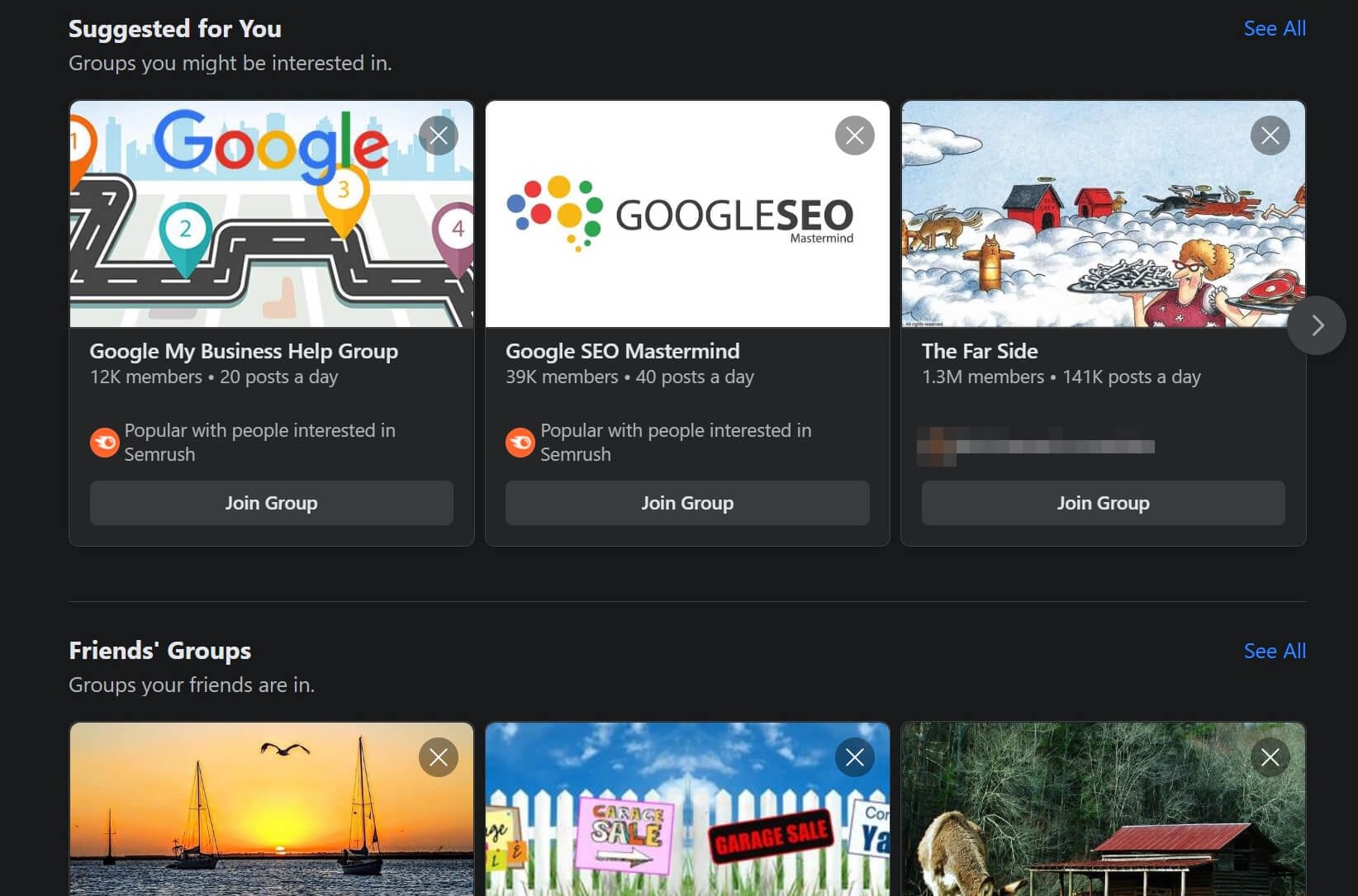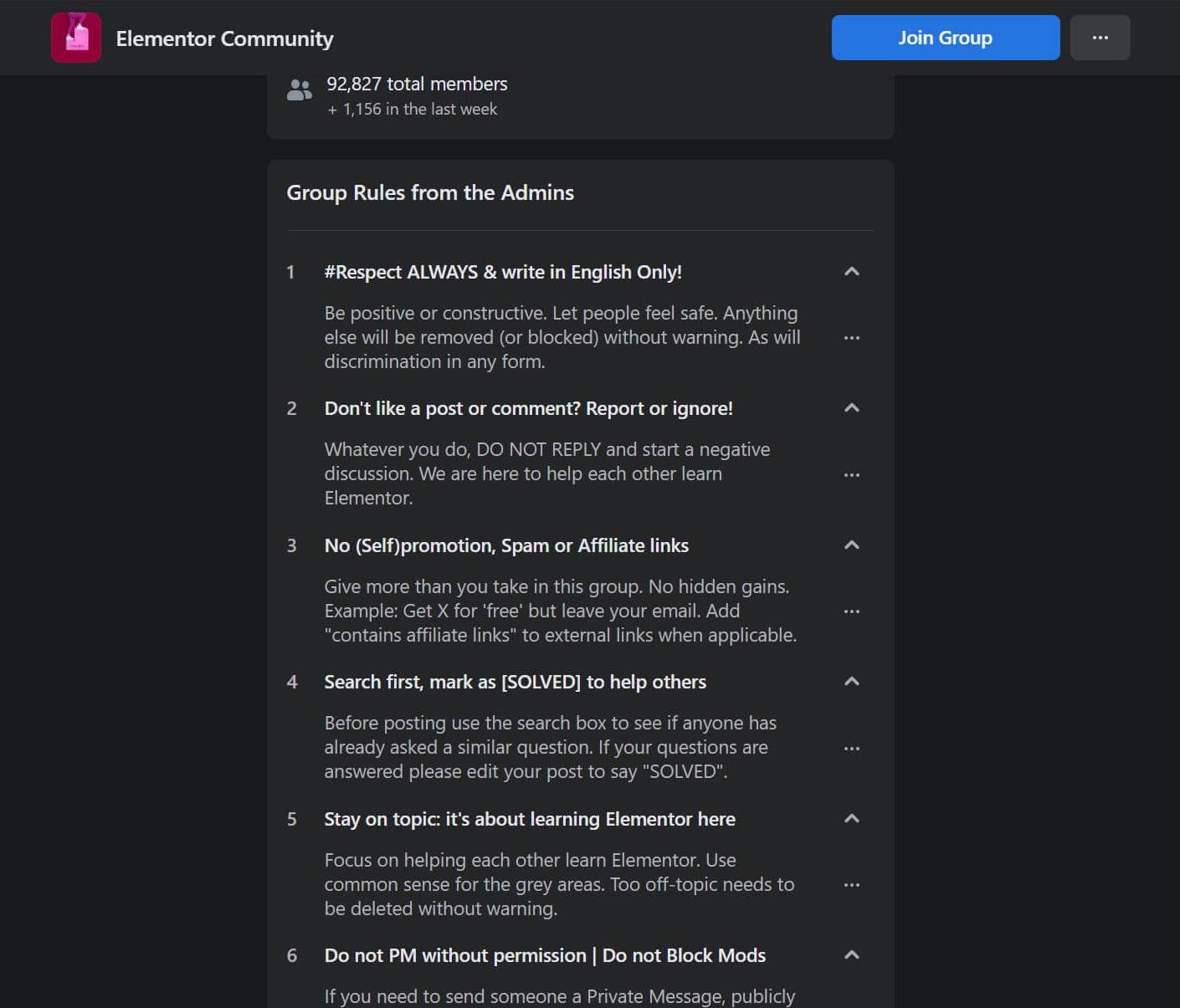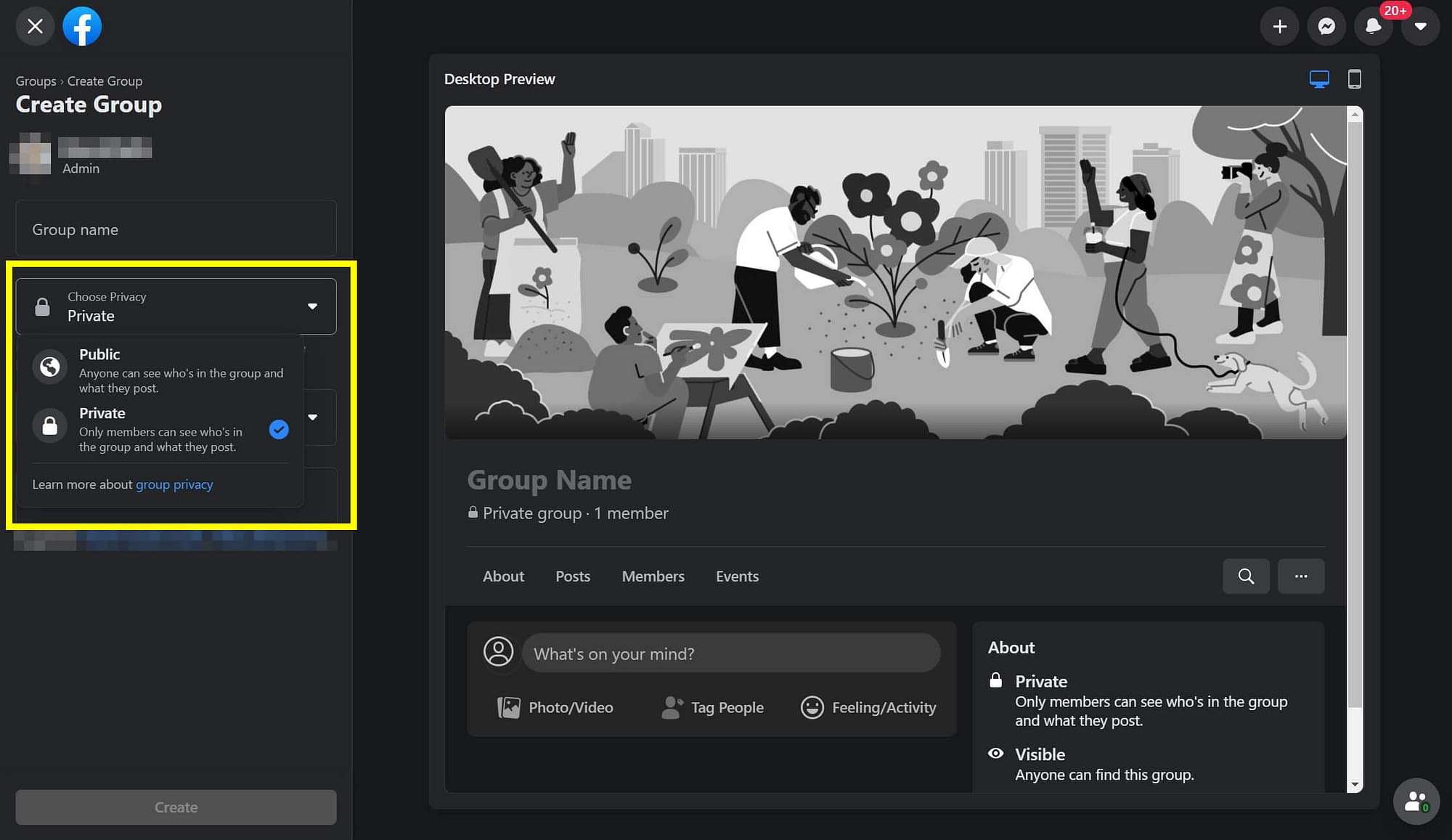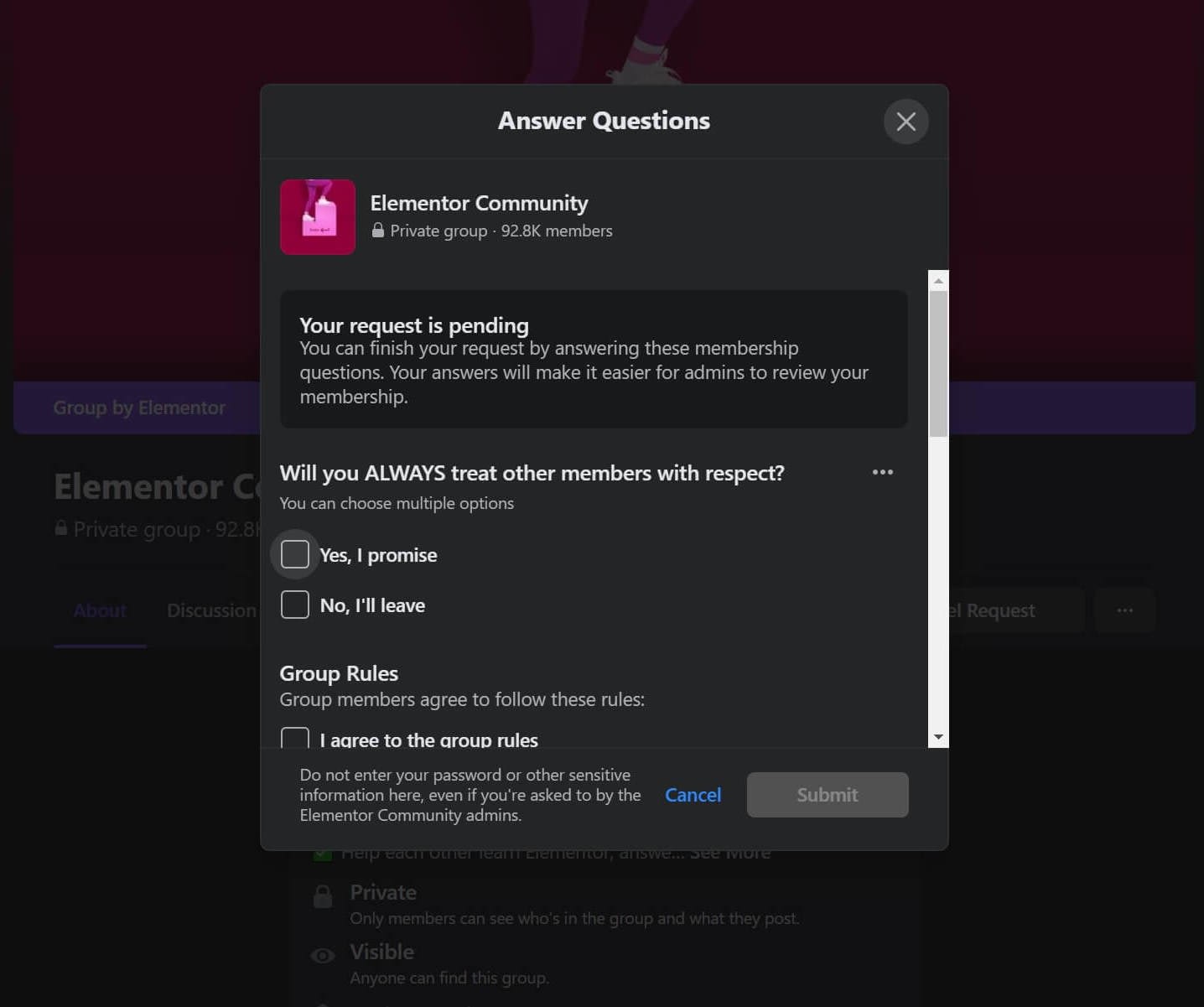Facebook has billions of diverse users, which presents an interesting challenge. While there are plenty of marketing opportunities on offer, it can be tough to cut through the noise and find your audience. Creating a Facebook group for business can be one excellent solution.
Groups enable your business to engage directly with devoted fans, and your fans to communicate with each other. This presents a unique opportunity to build a ‘captive audience’ of qualified prospects who are eager to hear from you. Plus, group activity directly increases your organic reach, thanks to Facebook’s algorithms.
In this article, we’ll explain what Facebook groups are and why they can be beneficial to your business. Then we’ll provide some best practices so you can get the most out of yours. Let’s dive in!
 Table of contents:
Table of contents:
- An introduction to Facebook Groups
- How Facebook Groups can benefit your business
- 6 tips to build a tribe using a Facebook Group for business
An introduction to Facebook groups
Most people are probably casually familiar with Facebook groups – they exist for nearly everything you can imagine, from homeowners’ pages to special-interest and support groups. They’re essentially like mini-networks within the larger Facebook universe:


Groups usually focus on a single topic of interest, whether that’s a band, an industry, a product, or a business. Members can communicate with each other and share information, tips, and tricks related to the topic. For example, you might have a group for hang gliding, where members discuss equipment and their favorite take-off points.
There are three types of Facebook groups: public, private and visible, and private and hidden. Here’s how each works:
- Public: Public groups are, well, public. Anyone on Facebook can see the group, and – more importantly – anyone can join it. You don’t necessarily want that when creating a group for your business.
- Private and visible: These groups are visible to non-members (for example, they show up in searches). However, they can’t be joined, viewed, or otherwise accessed unless you’re a member of the group. Non-members who want to join must request access, and an administrator then has to approve the request. Only approved members can post.
- Private and hidden: These groups are completely invisible – they don’t even show up in searches. As such, they’re invitation-only. Non-members won’t even know they exist unless you advertise the group.
In general, you want to go with a private but visible group for a general business community, and a hidden group for special purposes (like creating a group for a course). We’ll touch on this more below.
How Facebook groups can benefit your business
Despite what your younger friends may say, the amount of time people spend on Facebook continues to increase – and that was before everyone got cooped up at home due to the COVID-19 pandemic. Facebook also claims that groups saw a significant increase in user engagement in 2020. We see no reason this trend won’t continue, particularly as many areas around the world go back into lockdown.
That means there are a lot of people interested in and using Facebook Groups. More importantly, they’re pre-qualified prospects. People in a Facebook Group for a business are very likely to have a deep interest in that business, niche, or industry – and they want to talk about it. In other words, they’re some of your biggest fans, and they’re open to what you’re selling (if you do it right).
A Facebook Group also gives you a direct line to those fans. Not only can you potentially sell to them, but you can also keep an eye on trends and opinions about your business and products, straight from the community that’s using them. This kind of information is invaluable for improving customer relationships and building better products that your audience wants to buy, and no other social network enables you to create such a group.
Finally, an active Facebook Group for your business also increases your organic reach across the entire social network. This is because Facebook’s algorithm prioritizes “posts that spark conversations and meaningful interactions.”
That includes posts from groups – just scroll through your News Feed and take note of how many posts are from groups. What this means in practice is that you aren’t just getting the benefits of engagement within your Facebook Group, but you’re also increasing brand awareness outside the group at the same time.
Tips to build a tribe using a Facebook group for business
Now that you know why you should be leveraging a Facebook group to build your tribe, let’s take a look at how. These six tips should get you off to a running start.
1. Be clear about the rules for your business’ Facebook group
First, and perhaps most importantly, it’s vital to set some clear ground rules for conduct and content in the group. After all, this is the internet – with no rules in place, the quality of content can suffer, and conversations can quickly devolve into name-calling (or worse). Clear rules can help keep things civil and productive:


Besides a code of conduct, it can also be helpful to put guidelines in place for the types of content you want to see posted. A common rule in many groups is a limit (or outright ban) on self-promotion. Unless your group is explicitly intended for users to promote their work, these types of posts can really clog up your group and lower the quality of conversations.
2. Remember that your group is not about you
It’s important to remember what your group is all about: giving fans of your brand a space to discuss your products and related topics. While being able to sell additional items to these users is one of the reasons you likely started the group, that should never be the main focus. Instead, you’ll want to give the users a safe place to build a community. If you gather people to the group and then start immediately hitting them with sales propositions, you’re likely to quickly scare them all off.
In a similar vein, be sure to give the group some space. You don’t need to insert yourself, or a company spokesperson, into every conversation. While you do want to be active and accessible, there’s a balance to strike between being present and smothering.
3. Make the Facebook group for your business private
People love exclusivity. A private group feels like a special, secret space – a members-only club. People may be more likely to join and engage if they feel like they’re part of a special community:


Additionally, while it may seem counter-intuitive, you probably don’t want just anyone joining the group. Public groups can rapidly fill up with bots, trolls, and users who aren’t necessarily truly interested in your brand. Requiring approval to join ensures that your group is focused on your target audience. This may result in a smaller group, but the members will be better-qualified and more likely to engage (and purchase).
Now that you know you want a private group, you have a choice: private and visible or private and hidden. Which you opt for depends on the nature of the group. If you’re running a general-purpose group for your brand, visible is probably best. Hidden groups should generally be reserved for very specific purposes – such as communities based around courses you teach.
4. Use a questionnaire to filter out bots and trolls
Speaking of bots and trolls, just requiring admin approval to join a group isn’t always enough to discourage them. This is especially true if your group gets a lot of applications, and the administrators simply approve them all by default:


Your questionnaire doesn’t have to be complicated, or even more than a couple of questions. Just requiring an answer to a question is usually enough to determine if applicants are humans or bots. Questionnaires and application forms can be set up when creating your group.
5. Provide exclusive content for your Facebook group
To further capitalize on the exclusivity of your group, it’s a good idea to provide content that only members have access to. There are endless possibilities here, but the idea is to give group members a reason to keep coming back and engaging.
Examples of exclusive content you could use include:
- Q&A events with founders or key people in the company
- Product training videos
- Invitations to special events
- Contests and giveaways
Whatever you offer, avoid the temptation to cross-post it to other platforms or locations on the internet. Instead, it’s smart to keep it in the group for maximum impact.
6. Make sure you have enough administrators for the group
If you follow the above suggestions, the Facebook group for your business should start to grow. As it does, it’s critical to ensure that you have enough administrators who are up to the task of maintaining it. This can be a big job: as a group grows, discussions grow with it, and members inevitably clash, toe the line on rules, or just place large demands on the attention of the company.
Dedicated admins and moderators can help keep things from getting out of hand, ensure that questions are answered promptly and professionally, and keep the conversation flowing in the group. In other words, don’t try to tackle everything by yourself!
Conclusion
If you’re struggling to make headway with Facebook marketing, or you want a central place where your most loyal customers can gather to discuss your products and services, Facebook groups are an excellent solution.
Simply follow these six tips to start building your tribe and getting more from Facebook:
- Be clear about rules to keep troublemakers out.
- Remember that your group is not about you – it’s about your audience!
- Make your group private to add authority and exclusivity.
- Use a questionnaire to filter out bots and trolls.
- Provide exclusive content to keep members engaged.
- Make sure you have enough administrators to keep the group running smoothly.
Do you have exciting plans for using Facebook groups for your business? Let us know in the comments section below!
The post How to Build a Tribe Using a Facebook Group for Business appeared first on Revive Social.
